


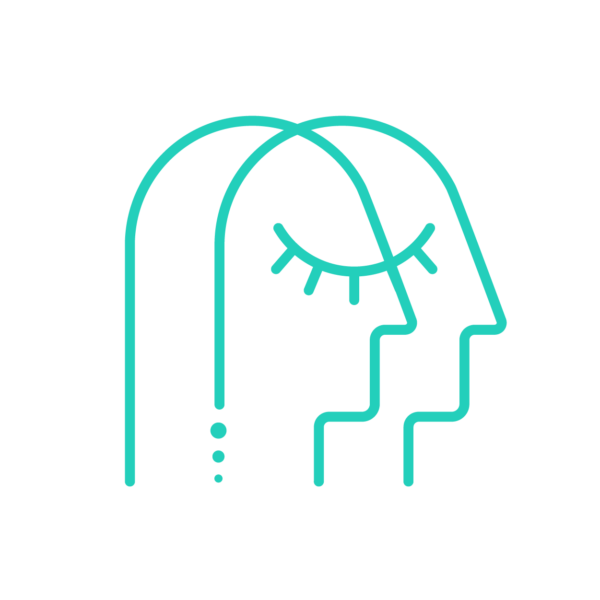



Inefficient sleep has been labeled as a public health epidemic by the U.S. Centers for Disease Control and Prevention (CDC).
Sleep is an essential function that enables the body and mind to recharge. Unfortunately, sleep disorder statistics reveal that around 70 million Americans suffer from insufficient sleep. About 50 percent of Americans self-report as having sleep issues. According to one Rand Institution study, productivity losses at work and injuries related to sleep deprivation cost the US economy $400B annually.
Sleep meditation offers a drugless, self-managed solution for those looking to improve the quality or quantity of their sleep.
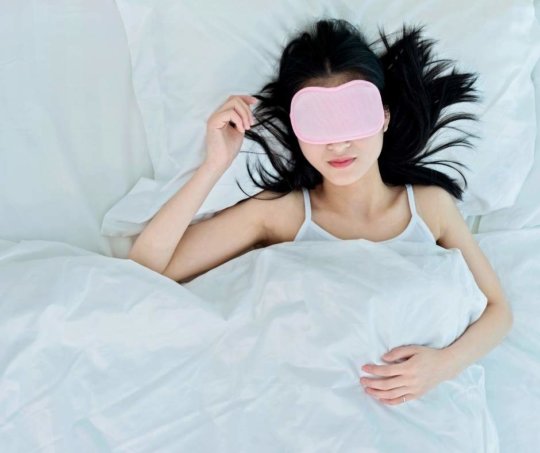

It’s common knowledge that healthy adults should aim for around 8 quality hours of sleep, but do you know why?
Your night’s sleep can be divided into four different stages, each based on the differences in brain activity throughout that stage. The third stage is responsible for your “deep sleep”, and it’s when your brainwaves slow down and your body repairs tissues, focuses on growth, and stores up energy for the next day.
This is quickly followed by REM sleep, where your brain activity spikes, you begin rapid eye movement, and your dreams occur. This stage of sleep is crucial for the development of memories, improved learning ability, and the development of proteins in the brain.
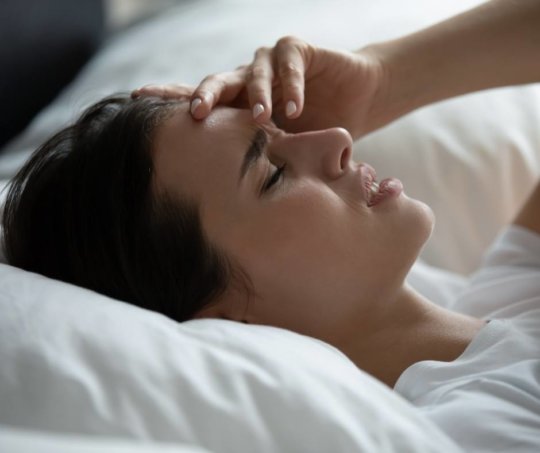
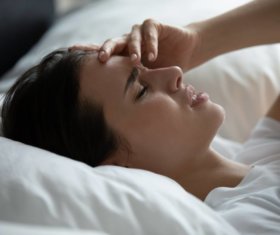
Achieving the optimal amount of sleep means much more than having enough energy for the following day! It means a properly functioning brain that can restore your body. We can’t add more hours in a day, we can only adjust the factors that help us fall asleep faster.
In short, getting enough sleep boosts brain function, keeps emotions in check, and reduces disease risks.
Lack of sleep increases the possibility of acquiring high blood pressure, heart attack, diabetes, and other conditions Also, it induces depression, obesity, and contributes to a reduced sex drive. The longer one goes without sleep, the more severe their symptoms become.

50 to 70 million Americans suffer from sleep deprivation. Sleep anxiety, insomnia, nightmare disorders, and other conditions contribute significantly to this statistic.
During normal sleep, we go through rapid eye movement (REM) and four non-REM (NREM). Experts classify stage 1 NREM as the lightest type of sleep and stage 4 as the deepest.
A person who doesn’t go through all the sleep stages in one night won’t feel rested or rejuvenated. These effects grow exponentially with continued sleep deprivation.
Sleep anxiety is the fear of going to sleep. People suffering from this condition worry about not falling asleep or being unable to stay asleep. In some cases, individuals may also experience somniphobia, the fear that something bad will happen when they sleep.
Sleep and psychiatric disorders sometimes go hand in hand. Those with sleep anxiety or somniphobia might also suffer from an anxiety disorder, which creates a vicious cycle.
Insomnia is a condition where an individual experiences difficulties falling or staying asleep. For some, it means waking up too early and not being able to go back to bed. People with this condition sometimes still feel tired after they wake up. Apart from affecting energy levels and moods, it might also negatively impact an individual’s quality of life.
Many factors can trigger insomnia, from mental health disorders to stress to physical illness. As a self-guided stress management tool, sleep meditation for insomnia may help those with this condition.
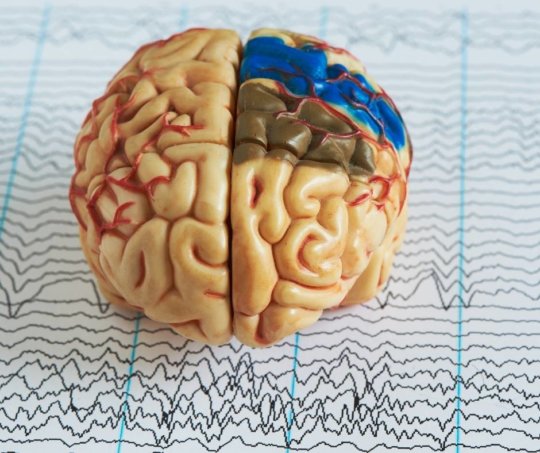
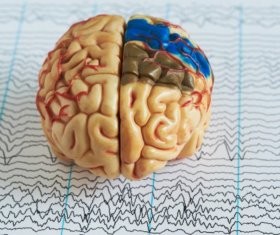
The brain contains electrical impulses called brainwaves, which play a critical role in all brain functions, including thoughts, emotions, and behaviors.
Understanding the neuroscience behind sleep, including what brainwaves occur during each stage, is a key component of gaining more control of your sleep patterns.
There are five brain wave types: delta, theta, alpha, beta, and gamma, each occurring at different frequencies and measured using hertz (Hz). Among them, delta waves are the slowest.
Experts link delta waves to the deepest levels of relaxation and restorative sleep.
Neurofeedback offers the everyday person the ability to track, target, and train specific brainwaves associated with the thoughts, emotions, or behaviors they wish to improve, especially stress and anxiety, which are major factors that affect the quality of your sleep.
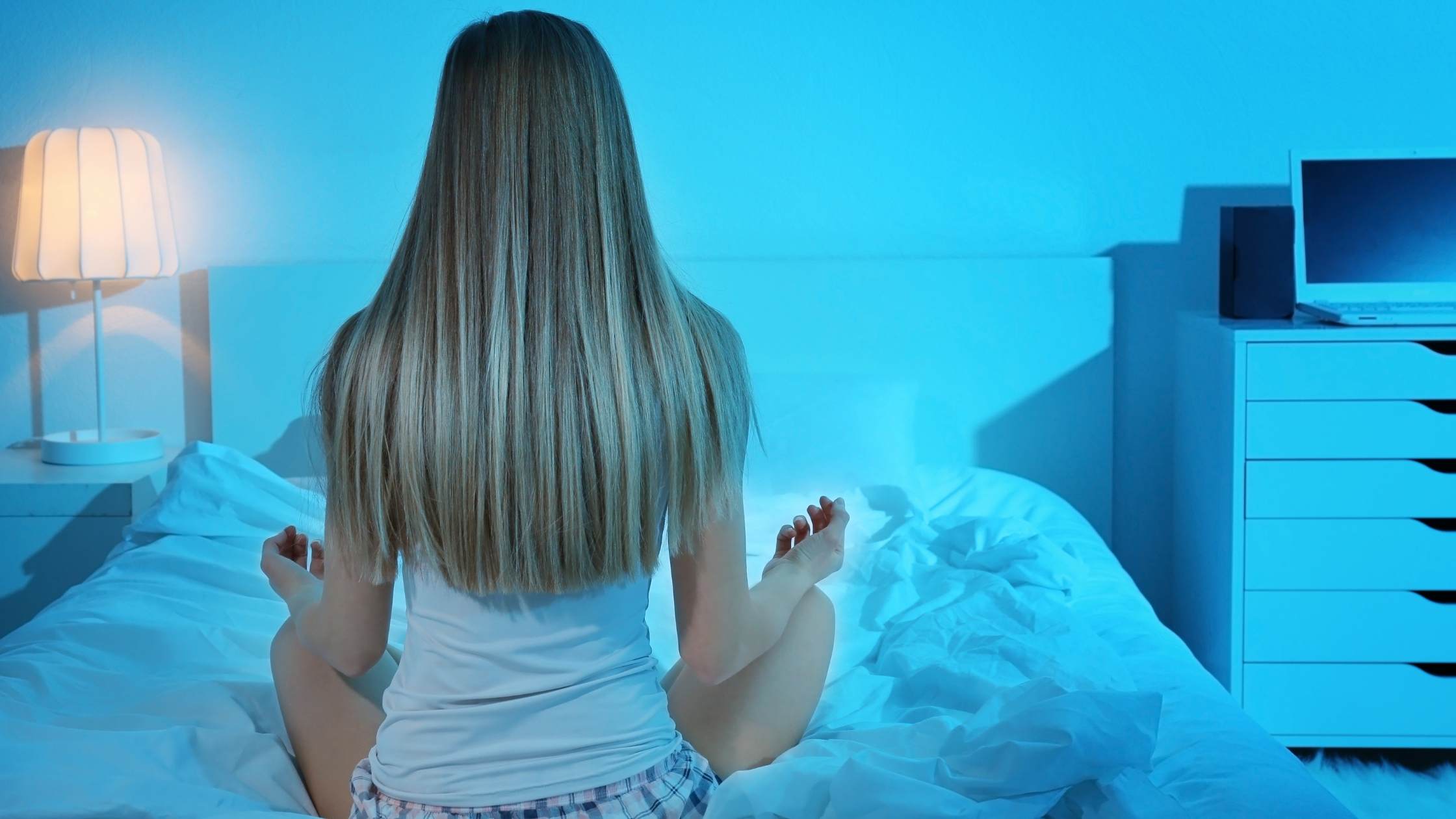

Sleep meditation is a form of meditation specifically catered to reduce stress, relax the mind, and contribute to more restful periods of sleep for the user.
Anxiety reduction and better sleep performance is well documented. Stress hijacks the brain leading to insomnia and vice versa. This cycle of restlessness creates an unhealthy environment when you’re caught within it.
Sleep meditation offers a drugless, self-managed way to improve sleep that many people find helpful.
However, sleep meditation is not a treatment or therapy for insomnia or other sleep disorders. It is not a replacement for sleep medication or professional counseling.
Instead, using meditation to go to sleep calms the mind, therefore pacifying the body. This tranquil state makes it easier to wind down and doze off. Regularly practicing this technique helps reduce sleep complications. In fact, the long-term benefits of regular meditation includes balanced hormone levels and increased sleep quality.
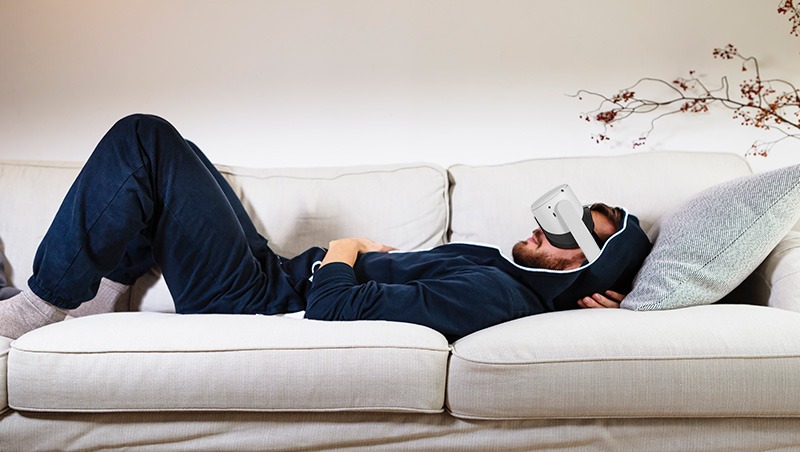
Meditation before hitting the bed significantly boosts feelings of relaxation. Consistently achieving this sense of calm helps you gain deeper, more sound sleep.
Sleep meditation has been shown to:
Sleep meditation beginners need practice and patience because it feels foreign at first. However, its impact on sleep quality and overall health is worth the wait.
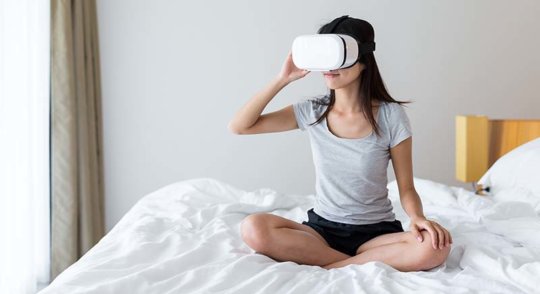

During the meditation process, the body releases melatonin — the hormone most associated with the sleep-wake cycle. Additionally, meditation helps reduce cortisol, the body’s primary stress hormone. Its impact on melatonin and cortisol promotes long, quality rest.
Mindfulness meditations, in particular, have a positive effect on those looking to improve their sleep. This is because mindfulness meditations induce a calm sense of acceptance and awareness that helps quiet the mind and regulate emotions. These benefits are also seen when listening to music to help you sleep


Meditation is essentially the process of altering your own brainwaves to achieve a desired effect. With sleep meditation, in particular, you are following guided instructions that affect the brainwaves most associated with stress and anxiety.
According to Dr. Jeff Tarrant, those brain patterns are increased fast-wave activity (High Beta/Low-Gamma) and decreased slow-wave activity (Alpha).
By using a sleep meditation app like Sleepium combined with neurofeedback, you can target those specific brain patterns and reward your brain when it decreases high beta and low gamma activity.
Over time, this routine operant conditioning helps train your brain to achieve longer, more successful sleep patterns.

These mediation types are ideal for improving sleep:
No matter what meditation type you prefer, we recommend doing it every day. Your practice doesn’t have to be lengthy or detailed to enjoy its benefits. Releasing stressful thoughts and emotions even for five minutes a day can do wonders for your sleep quality.
Daily meditations can help you improve your physical, emotional, mental, and spiritual state. Achieving balance in these four aspects can minimize your anxiety and prepare your body for a peaceful slumber.
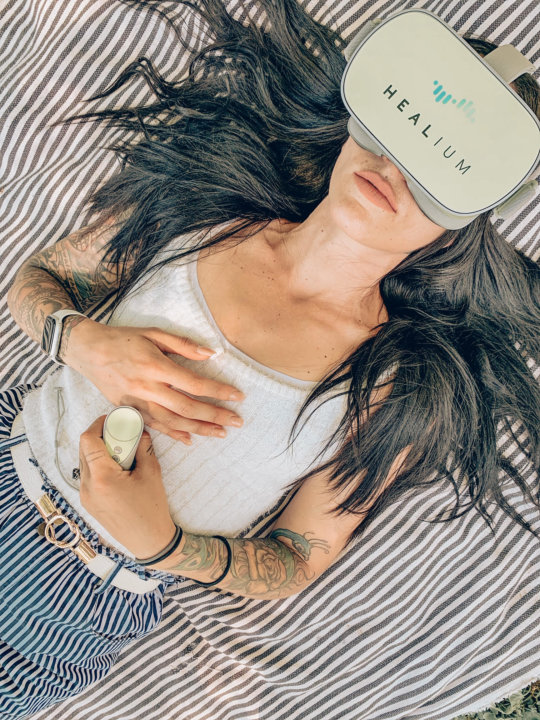

Meditation is a simple practice that anyone can perform anytime, anywhere. There are different sleep meditation guides readily available, but they have core similarities. Below are some quick and easy steps to meditate right now:
Practicing meditation regularly is a healthy, drug-free way to improve your mental fitness overall (and sleep, specifically).
However, there are ways to further maximize the potential of your meditation , receive the full benefit of regular practice, and track the improvements to your brain along the way!
When using meditation as a mental fitness tool, it’s best to treat your brain like a muscle, which means following guided training sessions and tracking your brain’s progress.
Healium’s sleep application Sleepium pairs neurofeedback devices with immersive sleep meditation experiences in virtual and augmented reality so you can train the brain waves associated with sleep, challenge your brain, and track your progress overall.
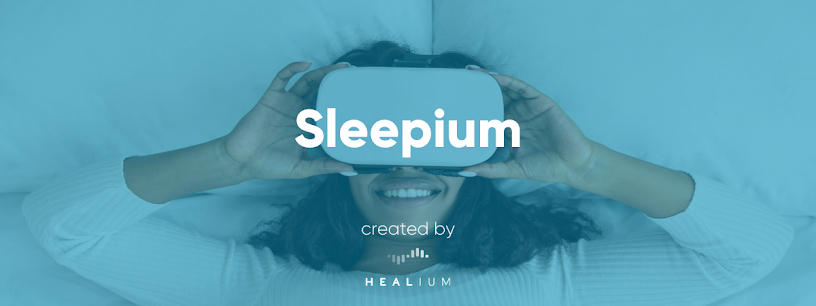
At Healium, we take an active approach to sleep meditation and believe better sleep is something you can train your brain to achieve.
Our augmented and virtual reality meditation apps sync with neurofeedback and biofeedback devices (like the BrainLink Lite Headband) so you can capture your brainwave data. Not only are you measuring the data, but you’re also interacting with it in virtual and augmented reality. Your data is visualized so you can see it. This data is tracked on a dashboard so you can train specific brainwaves and remove the mystery from meditation.
Sleep hygiene begins during the day with stress management (not just at night). Train with the headband during the day, then ditch the EEG headband to view the VR experiences at night!
Sleepium has been shown in 5 peer-reviewed journals to reduce anxiety and improve mood in as little as 4 minutes. Sleep meditation is included in our array of meditation experiences that increase your mental fitness.
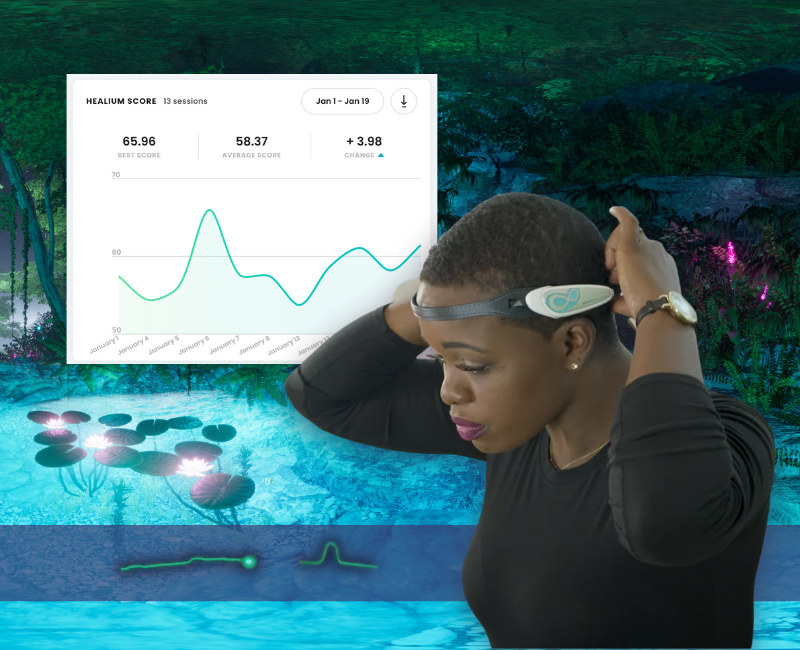
We didn’t develop Sleepium to send you straight to sleep. Instead, we designed it to transform your relationship with sleep. Our goal is to gradually create a conducive environment for invigorating rest.
Since your mindset throughout the day impacts your sleep, the preparation begins even during the day. With Sleepium, it’s best to use the optional neurofeedback hardware throughout the daytime so you can tackle the training sessions with full energy and attention like you would any other form of exercise.
Select the sleep meditation experiences, set your personal brainwave baseline, and concentrate on keeping the firefly above that line throughout the meditation experience. The more you practice, the more successful you will become!

To meditate in bed to fall asleep, we recommend using Sleepium without any bio or neurofeedback wearable. Simply lay flat on your back on the bed, enjoy the immersive experience, and let the mind shut down gradually.
You’ll find as you routinely train your brainwaves throughout the day, your brain more readily accepts sleep when it’s nighttime.
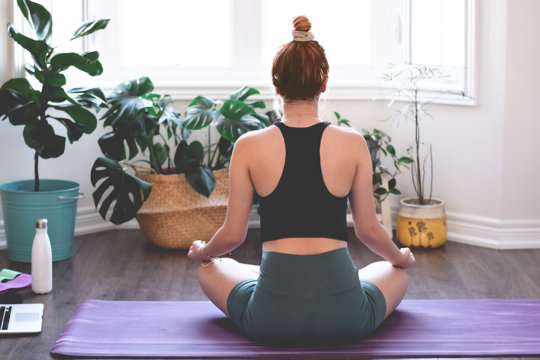
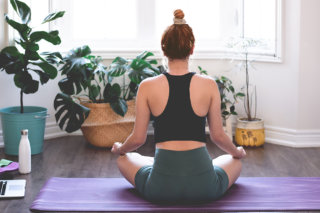
Getting enough sleep is as critical to our health as a healthy diet and regular exercise. We can’t be our best selves if we don’t provide our bodies with enough rest.
At Healium, we practice a holistic approach to addressing sleep deprivation. We believe in the power of mediation, but it can only do so much if the body is not ready to accept it. For meditation to work its magic, we should use it with other sleep-inducing strategies.
Below are some of the most common ways to improve your sleep, aside from meditating.


A study on exercise and insomnia shows that sleep-deprived individuals fall asleep 13 minutes faster and stay asleep 18 minutes longer after four weeks of regular exercise. The temperature changes, anxiety relief, and internal body clock realignment associated with exercising induce quality sleep.
You don’t have to do anything extreme to get a good night’s sleep. Walking, yoga, and group fitness classes can yield great results.


A regular schedule — even on weekends — helps you maintain your body’s internal clock. When you establish a routine, you help your body fall asleep and wake up more easily. It’s virtually impossible to sleep at the exact same time every day, but a consistent time frame can drastically improve your sleep quality.
This feat may be challenging for those with shifting work schedules and avid travelers, but you can use visual clues to influence sleep-wake cycles.


Ideally, your sleep environment should be dark, cool, and quiet. Darkness helps release melatonin, and cooler temperatures support quality sleep. You can control these factors simply by turning off your lights, putting your gadgets away, and adjusting your air conditioner.
However, the quiet part is a bit more challenging. It doesn’t just mean being in a sound-proof room but also having a peaceful state of mind.


A stressed and anxious mindset is one of the biggest barriers to a serene slumber. When you suffer mentally, your fears, doubts, and apprehensions take over your mind and body. Sleep deprivation aggravates these conditions, and some people require professional help to break the cycle.
Once you address your mental health concerns, you open yourself up to the benefits of sleep meditation.
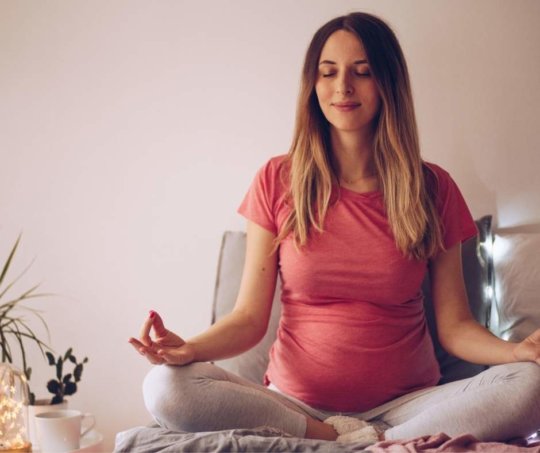

Sleep is an essential part of our health. If we don’t get enough of it, we become more prone to potentially life-threatening diseases.
Tens of millions of Americans suffer from sleep deprivation. One of the most groundbreaking solutions to this growing concern is sleep meditation. From morning to night, you can practice ways to create the ideal conditions for a restful night’s sleep.
If you want to try visual meditation through nature-based virtual reality technology, we’d love to help. We can help you swim in the Maldives, create snow angels, or listen to birds chirping in the forest right in the comfort of your home.
Ultimately, these experiences should make you calm enough to relax and welcome a good night’s sleep. Visit our Sleepium page to learn more about our revolutionary technology.